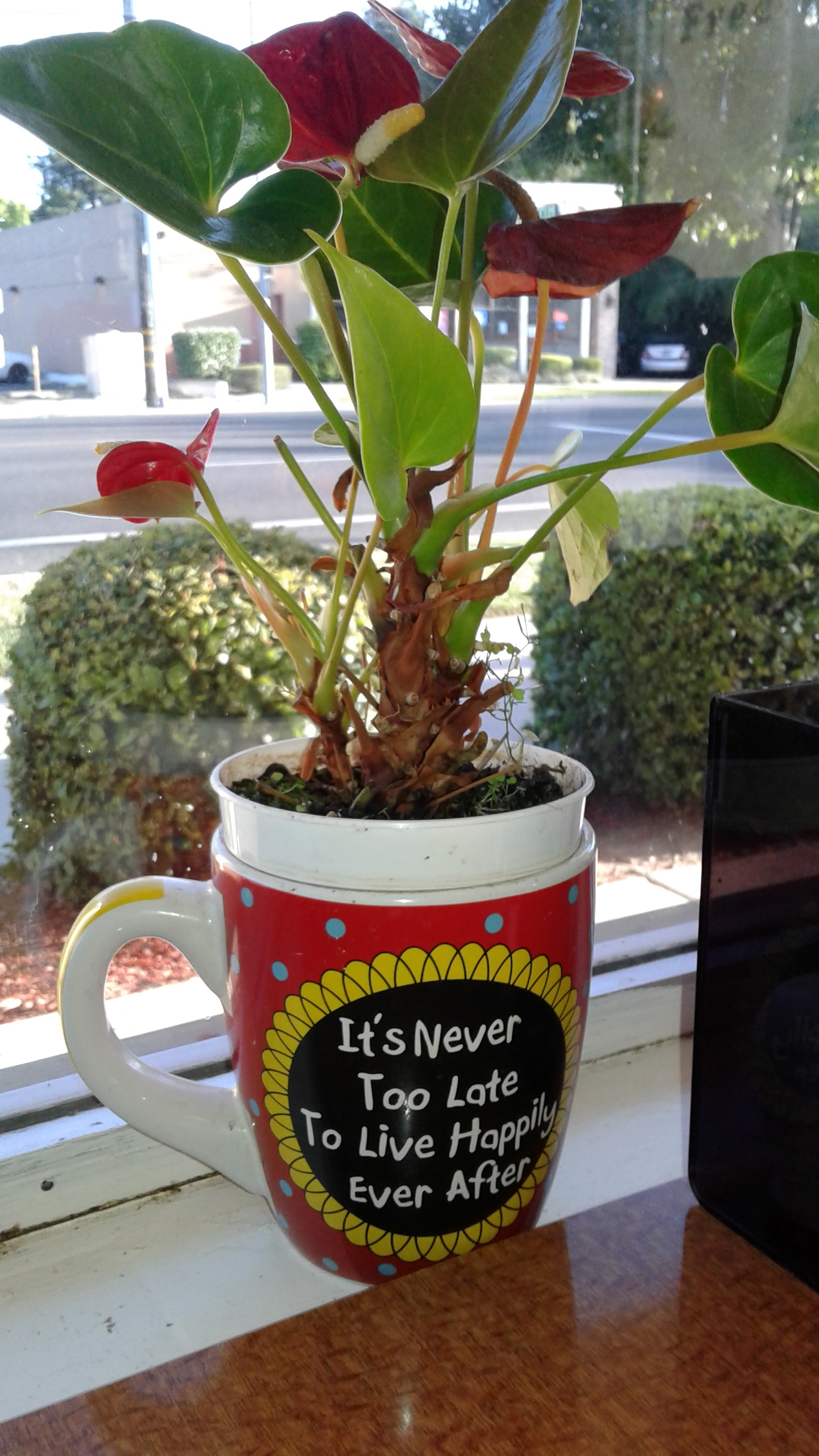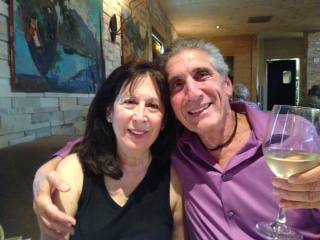It’s Never Too Late to Live Happily Ever After,” read the colorful oversized Coffee cup flower pot at our table at LeQuy, our favorite restaurant for Pho, Vietnamese noodle soup (click photo for expanded view).
The uplifiting wisdom saying coincided with my having read about a recent study conducted by Harvard psychologists Matthew K. Killingsworth and Daniel T. Gilbert. Working with a sampling of 15,000 people from a broad socio-economic background, across 80 countries, they concluded that a “Wandering Mind” is an Unhappy Mind. The happiest people seem to be those who are consistently more mindful of the present moment and become least happy when they allow their minds to wander.
It confirmed everything I had learned from many years of Mindfulness training, my yoga practice and reading classic books on the subject like, “Be Here Now,” written by former Harvard professor and American spiritual teacher Ram Das (born Richard Alpert). Still, I slip now and again. But like all worthwhile endeavors it requires practice, and worth the effort.
We spend almost 50% of our waking hours thinking about something other than the task at hand. A great deal of time is employed ruminating about the past, contemplating the future, and fantasizing to avoid being bored. In fact, “The Mind,” produces about 60,000 thought a day, 80% of which are negative.
The researchers noted, “That people were happiest when making love, exercising, or engaging in conversation,” and; “least happy when resting, working, or using a home computer.” I would add that people are also happiest when they are passionate about their favorite pastimes like gardening, art, music, dance, bicycling, etc.
I was once asked by an acquaintance, “How can you have a blog entitled: enjoyyourlifenow.net, nobody can be happy all the time?
I explained that a happy life does not mean the absence of difficulities but facing them head on, knowing that “this too shall pass.”
One of my mentors, Joseph Campbell to whom I paid tribute to, in my book: Invisible Means of Support, A Transformational Journey wrote: “You learn to recognize the positive values in what appear to be the negative moments and aspects of your life.” When I have what appears to be a bad day, I invariably can recall an event or two that gladdened my heart. Years ago, I even wrote a poem in my journal about it called “Not a Bad Day for a Sad Day,” that touched on this subject.
Happiness, it turns out is a skill, a power we possess within ourselves. We only need to know how to harness it. Cultivating joy or contentment in the midst of life's challenges and difficulties is pivotal. Joy is not some self-improvement prop we tell ourselves but an inclination of the heart that softens and eases around a difficulty that can taken hold of us at any given time.
Following dinner at our friend Marianne's home, who is an artist, poet and children's book writer, she sent us a handwritten card—unusual in this day and age—that read: “Through the spiraling of time and changes, we are grateful for your friendship. We have endured great loss in the past year, and have wonderful joys to savor every day…Ah, such is the heartbreak and beauty of this precious life.”
The front of the card had the following quote by Voltaire (Francois-Marie Arouet, 1694-1778), a French Enlightenment writer, historian and philosopher that read: "I have decided to be happy, because it is good for my health.” In spite of a tumultuous career at a time of great change, he knew as does singer, songwriter and producer Pharrell Williams, that happiness is a choice.

